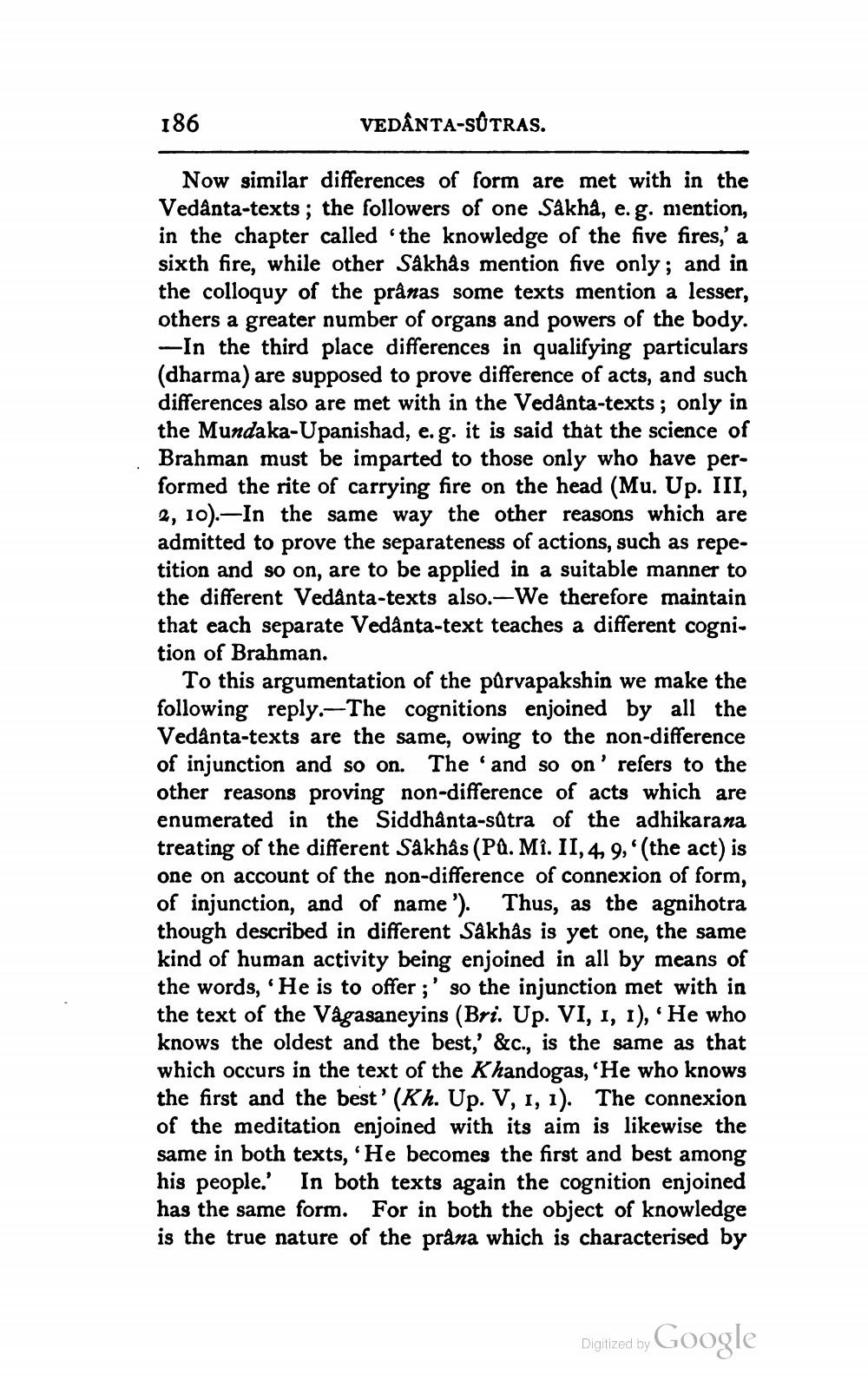________________
VEDANTA-SUTRAS.
Now similar differences of form are met with in the Vedanta-texts; the followers of one Såkhâ, e. g. mention, in the chapter called 'the knowledge of the five fires,' a sixth fire, while other Sâkhâs mention five only; and in the colloquy of the prâmas some texts mention a lesser, others a greater number of organs and powers of the body. -In the third place differences in qualifying particulars (dharma) are supposed to prove difference of acts, and such differences also are met with in the Vedanta-texts; only in the Mundaka-Upanishad, e. g. it is said that the science of Brahman must be imparted to those only who have performed the rite of carrying fire on the head (Mu. Up. III, 2, 10). In the same way the other reasons which are admitted to prove the separateness of actions, such as repetition and so on, are to be applied in a suitable manner to the different Vedanta-texts also.-We therefore maintain that each separate Vedânta-text teaches a different cognition of Brahman.
186
To this argumentation of the pûrvapakshin we make the following reply.-The cognitions enjoined by all the Vedanta-texts are the same, owing to the non-difference of injunction and so on. The and so on' refers to the other reasons proving non-difference of acts which are enumerated in the Siddhânta-sûtra of the adhikarana treating of the different Sâkhâs (Pû. Mî. II, 4, 9, ' (the act) is one on account of the non-difference of connexion of form, of injunction, and of name'). Thus, as the agnihotra though described in different Sâkhâs is yet one, the same kind of human activity being enjoined in all by means of the words, 'He is to offer;' so the injunction met with in the text of the Vagasaneyins (Bri. Up. VI, 1, 1), 'He who knows the oldest and the best,' &c., is the same as that which occurs in the text of the Khandogas, 'He who knows the first and the best' (Kh. Up. V, 1, 1). The connexion of the meditation enjoined with its aim is likewise the same in both texts, 'He becomes the first and best among his people.' In both texts again the cognition enjoined has the same form. For in both the object of knowledge is the true nature of the prâna which is characterised by
Google
Digitized by




